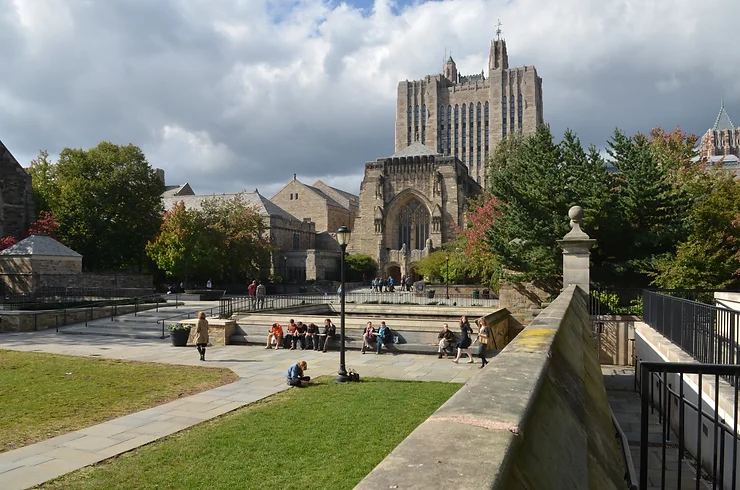
Last month, William “Rick” Singer, who orchestrated a massive college admissions scam, pleaded guilty to money laundering, racketeering, obstruction of justice and tax evasion.
Major news sources continue to publish updates on the story. We keep hearing about how parents are pleading to charges, about deleted social media accounts, and, most recently, about “target letters” which government officials continue to send to other individuals who may be linked to the scam.
It didn’t take long for college consultants from across the country to begin issuing statements condemning Singer, and asserting that there are no shortcuts in the admissions process. We ourselves published a statement, and spoke with CNN, denouncing cheating of any kind.
These statements are important, and the general indignation of professionals in the college consulting industry is warranted. It’s infuriating to imagine the deserving students who lost their spots at top colleges to the children of thosewho gamed the system by cheating on tests and bribing college officials and coaches.
Our partner, Marc-André Alexandre, who helps students navigate the college athletic recruiting process, and who was himself a student-athlete recruit and captain of Yale’s track and field team, expressed his shock and dismay:
“I was extremely disappointed because I know how hard student-athletes like myself and my former teammates worked to get into top schools. The whole scandal is a particularly violent blow to all the student-athletes whose hard work and dedication were completely negated, and whose opportunities were taken away. This system is supposed to be meritocratic.”
Now that some of us have had a chance to express our disappointment, we need to examine the admissions process — this system that purports to be meritocratic.
The college consulting and tutoring industries, and even the college admissions process itself, have come under scrutiny as a result of this scandal. We should all welcome this scrutiny. This is an important opportunity for us consultants, and for tutors, elite summer program organizers, and colleges to take a close look at our practices and policies and develop a concrete plan to make our activities more equitable.
What is College Consulting?
Paradoxical though it may sound, college consulting should not be first and foremost about college admissions. College consulting should be about the success of students in high school and beyond. The college admissions process is just one step — albeit a very important one for many — along the way. College consulting should be about helping students identify their talents and passions. It should be about encouraging them to seek out opportunities to create impactful projects they feel motivated to pursue.
College consulting is not about “gaming the system.” After all, there is no magic formula of high school courses, SAT Subject Tests, and extracurriculars that can guarantee acceptance to top colleges. Every student has a unique set of skills and interests and will excel when he or she pursues what motivates him or her.
Using bribes to create shortcuts and “side doors” (Singer’s euphemism) is not college consulting. William Singer wasn’t a college consultant.
What is so idiotic about Singer’s approach to “college consulting” is that his rich and famous clients could very easily have used their numerous advantages and privileges to gain admission to the schools on their college lists legally.
To give just one example, Olivia Jade (Lori Loughlin’s daughter) was a social media influencer throughout high school. She amassed 2,000 subscribers in her first week, and continued to grow her following so rapidly that she was soon advertising products, and even creating her own fashion accessories. By the time she finished high school, she had close to 2M followers on YouTube.
For a student with a platform like this, the possibilities are endless. Olivia could have advocated for a cause she cared about and made an impact. A real college consultant would have encouraged her to design a meaningful project she was passionate about, and which would have increased her chances of getting into a great college that was right for her.
Additionally, certain exceptionally wealthy celebrity families benefit from V.I.P. status in the admissions process. (Students like Malia Obama and Emma Watson generate excellent press coverage for the universities they choose to attend, and this is taken into account by admissions offices.) Often, these families also have the financial means to be considered as development cases (i.e., the family commits to making a donation of around $10M at the very least if the student is accepted).
All this to say that the deck is already stacked in the favor of students like Olivia Jade. There’s really no need to cheat when you’re born with such incredible advantages.
But the fact that Olivia’s parents had many legal (albeit pricy) options before them raises an obvious, important question: isn’t the process still unfair, even when it’s legal? Furthermore, even if someone like Olivia had worked hard and accomplished great things, wouldn’t his or her achievements still have been the result of paid outside help?
Yes: just like a private secondary education for any student whose family is paying tuition, just like SAT tutoring, just like a fancy summer college prep program, a college consultant is paid outside help.
Of course, this is not to say that students who receive help can’t claim credit for their accomplishments. It is a fact, however, that students who work with highly qualified college consultants perform better in the college application process.
Making the College Admissions Process More Equitable
What’s important to discuss now is the fact that the education system in the United States — from standardized testing, to the tutoring and college consulting industries, to expensive summer programs for high schoolers, to private education itself — favors the wealthy and the privileged. It benefits white students over non-white students. If this wasn’t already abundantly apparent, Harvard’s recent lawsuit leaves little doubt.
As NPR’s Steve Inskeep pointed out on Wednesday on Up First, well-intentioned experts often claim that education is the solution to income inequality. “What we have here,” he said, referring to the admissions scandal orchestrated by William Singer, “is a symptom of how even [the benefit of education] is reserved for the very few in many cases.”
We all need to do our part to fight for equity in education. When it comes to standardized testing, it is not enough for colleges to adopt “test-optional” policies. These plans often benefit university rankings more than the students applying.
When it comes to tutoring companies and college consultancies, it is not enough for companies to pledge to offer services pro bono. We say this as a company that is committed to pro bono work. The fact is that there is no way to verify that tutors and consultancies are dedicating meaningful time and resources to helping students who cannot afford the premium services that give certain students a leg up.
The education consultant sector is a big industry. IBISWorld estimates its annual revenue in 2018 at $2B. Agreeing to allocate a part of our revenue to fund non-profit college consulting and test prep organizations could be a first step toward a more level playing field. (These organizations would have to be approved by a third party. We are, of course, not talking about sham charities like Singer’s “The Key.”) If every company were to donate a mere 1% of its revenue, $20M could be invested annually in the education of those who currently can’t afford consulting services.
College consultants are not the only ones who need to do better. Public schools (even certain private schools) need more funding for college counseling services. We repeatedly hear the same story from our clients: their child’s counselor is extremely overworked. In 2015–16, a single public school counselor was responsible for 470 students. When we founded our company in the fall of 2018, the New Haven Board of Education had recently cut the number of college counselors in our city by a third.
Colleges need to reevaluate their policies regarding development and legacy cases. If they are willing to allow a small minority of families to buy their child’s way in, they need to be transparent about their policies and the use they make of such donations. These donations should necessarily benefit the school’s other students — in the form of scholarships, for example. Legacy policies are aristocratic and outdated.
In Sum
So long as the SAT and ACT continue to be offered (even as “optional” at certain schools), there will be test prep specialists. So long as a college education represents a $200K (or more) investment for many families, these families will invest extra in experts to ensure their children maximize their shot at getting into the right school for them. And they will pay top dollar for prestigious summer programs. So long as high school college counselors are each responsible for nearly 500 students, families will seek outside help.
College consultants who claim simply that this is how the world works demonstrate self-serving cynicism. And yet, to reject private education wholesale without offering concrete solutions is counterproductive. Now is the time for everyone involved in this complex and imperfect process to do his or her part to make admissions more responsible and equitable. And, it’s time for us, college consultants, to find ways to make our services more available.

